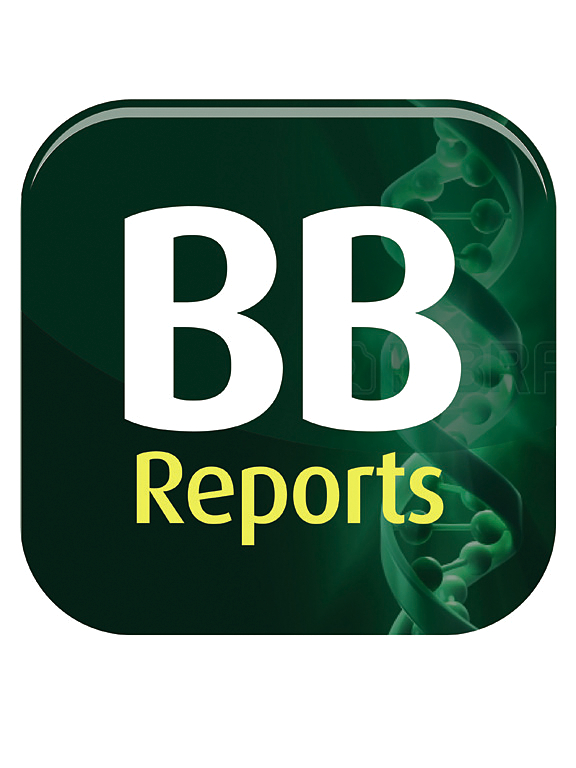Inhibition of PI3K/AKT/mTOR signaling enhances autophagy in HL-60 acute myeloid leukemia cells: An integrative bioinformatic and in vitro study
IF 2.2
Q3 BIOCHEMISTRY & MOLECULAR BIOLOGY
引用次数: 0
Abstract
Background
Acute myeloid leukemia (AML) involves uncontrolled proliferation of myeloid progenitor cells and carries a poor prognosis. The PI3K/AKT/mTOR pathway plays a key role in AML pathogenesis by regulating cancer cell proliferation and survival. This study investigates the effects of inhibiting the PI3K/AKT/mTOR pathway on autophagy in AML cell lines, aiming to support targeted therapy development that modulates autophagy.
Methods
Gene expression and prognostic significance of PI3K/AKT/mTOR and autophagy-related genes in AML were evaluated using Enricher, GEPIA2, and Human Protein Atlas databases. HL-60 cells were treated with Idelalisib, MK-2206, and Everolimus, selective PI3K, AKT, and mTOR inhibitors, either individually or in combination. Autophagy gene expression (Beclin-1, LC3-II, Atg5, ATG7) was assessed by Real-time PCR.
Result
Bioinformatic analysis revealed that autophagy genes are associated with PI3K/AKT/mTOR pathway in AML. We observed that HL-60 AML cell lines treated with PI3K/AKT/mTOR inhibitors exhibited significant enhancement in the expression of key autophagy-related genes, including Beclin-1, LC3-II, ATG5, and ATG7, particularly with combination treatment.
Conclusion
PI3K/AKT/mTOR inhibitors significantly induce autophagy-related gene expression in AML cells. These findings support combining such inhibitors with autophagy modulators as a potential strategy to improve AML treatment outcomes.
抑制PI3K/AKT/mTOR信号可增强HL-60急性髓系白血病细胞的自噬:一项综合生物信息学和体外研究
急性髓系白血病(AML)涉及髓系祖细胞不受控制的增殖,预后较差。PI3K/AKT/mTOR通路通过调控癌细胞增殖和存活在AML发病过程中发挥关键作用。本研究探讨抑制PI3K/AKT/mTOR通路对AML细胞系自噬的影响,旨在支持调控自噬的靶向治疗开发。方法利用Enricher、GEPIA2和Human Protein Atlas数据库评估AML中PI3K/AKT/mTOR及自噬相关基因的表达及预后意义。HL-60细胞用Idelalisib、MK-2206和依维莫司、选择性PI3K、AKT和mTOR抑制剂单独或联合处理。Real-time PCR检测自噬基因Beclin-1、LC3-II、Atg5、ATG7的表达。结果生物信息学分析显示,AML自噬基因与PI3K/AKT/mTOR通路相关。我们观察到,用PI3K/AKT/mTOR抑制剂处理的HL-60 AML细胞系,特别是联合治疗,显著增强了关键自噬相关基因的表达,包括Beclin-1、LC3-II、ATG5和ATG7。结论pi3k /AKT/mTOR抑制剂可显著诱导AML细胞自噬相关基因的表达。这些发现支持将这些抑制剂与自噬调节剂联合使用作为改善AML治疗结果的潜在策略。
本文章由计算机程序翻译,如有差异,请以英文原文为准。
求助全文
约1分钟内获得全文
求助全文
来源期刊

Biochemistry and Biophysics Reports
Biochemistry, Genetics and Molecular Biology-Biophysics
CiteScore
4.60
自引率
0.00%
发文量
191
审稿时长
59 days
期刊介绍:
Open access, online only, peer-reviewed international journal in the Life Sciences, established in 2014 Biochemistry and Biophysics Reports (BB Reports) publishes original research in all aspects of Biochemistry, Biophysics and related areas like Molecular and Cell Biology. BB Reports welcomes solid though more preliminary, descriptive and small scale results if they have the potential to stimulate and/or contribute to future research, leading to new insights or hypothesis. Primary criteria for acceptance is that the work is original, scientifically and technically sound and provides valuable knowledge to life sciences research. We strongly believe all results deserve to be published and documented for the advancement of science. BB Reports specifically appreciates receiving reports on: Negative results, Replication studies, Reanalysis of previous datasets.
 求助内容:
求助内容: 应助结果提醒方式:
应助结果提醒方式:


